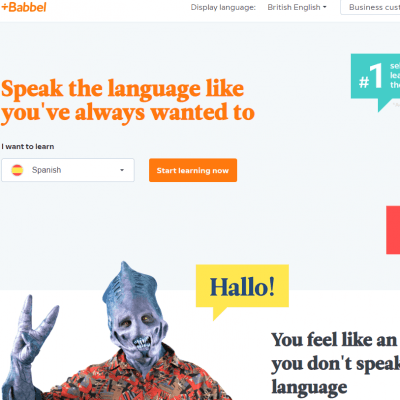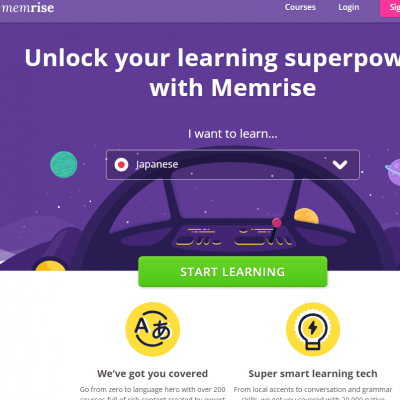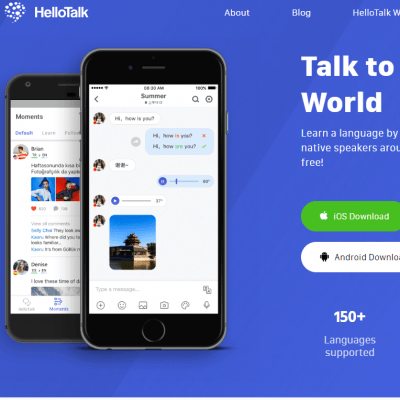Duolingo
duolingo.com
Duolingo is a free language-learning mobile application and website that offers more than 50 language courses across 23 languages, including Spanish, French, Italian, German, Japanese and Russian. It boasts around 120 million registered users and is available on iOS, Android and Windows.
One of the best features of Duolingo is the effortless, and even fun, way in which it makes learning language. Rather than simply reading or listening, the app uses a variety of different images and symbols to help you remember what you have learned, while at the same, requiring you to speak out loud to complete tasks.
The app is set up like a game, making learning an addictive process. After downloading the app and choosing which language to learn, you must set ‘weekly goals’, which determines how long per day you will spend learning. Once you have reached your daily goal, trumpets will sound to announce it and you can also gain badges to show progression. This makes the whole process a lot more fun than sitting in front of a grammar book or watching someone explain the imperfect subjunctive in a YouTube video.
However, one criticism I would make of the platform is that some of the sentences it asks you to translate do not make sense and would never be required in a day-to-day conversation with a native speaker. At times, it feels as though the app has selected a load of random words and put them together, rather than basing them on proper phrases and colloquialisms.
Another important aspect that should be recognised about the app in general is that it cannot replace traditional learning methods led by real teachers, and instead should be considered a companion to learning alongside other means. An over reliance on Duolingo and rejection of other forms of learning will not make you fluent in a foreign language.

I am a professional travel writer and travel enthusiast who traveled the world twice, so I am sharing my firsthand knowledge about everything related to travel and spending time abroad.
- Free app featuring courses in 23 languages
- Effortless, fun style of learning, similar to playing a game
- Badges reward progression in a language
- Some sentences do not make practical sense and are unlikely to ever come up in a day-to-day conversation
- Only good for teaching the basics











